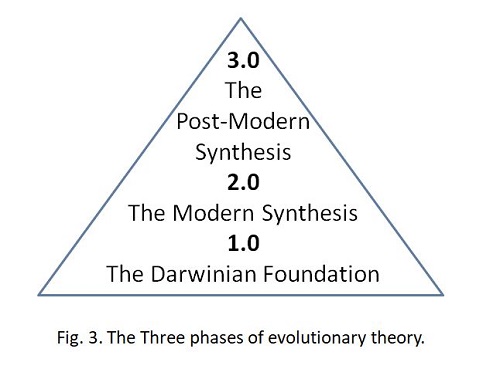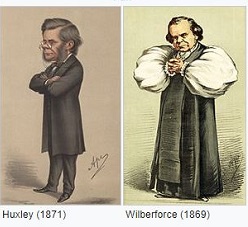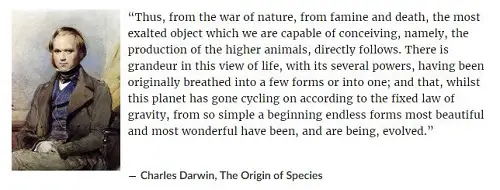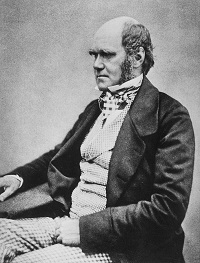|
TRANSLATE THIS ARTICLE
Integral World: Exploring Theories of Everything
An independent forum for a critical discussion of the integral philosophy of Ken Wilber
  Frank Visser, graduated as a psychologist of culture and religion, founded IntegralWorld in 1997. He worked as production manager for various publishing houses and as service manager for various internet companies and lives in Amsterdam. Books: Ken Wilber: Thought as Passion (SUNY, 2003), and The Corona Conspiracy: Combatting Disinformation about the Coronavirus (Kindle, 2020). Frank Visser, graduated as a psychologist of culture and religion, founded IntegralWorld in 1997. He worked as production manager for various publishing houses and as service manager for various internet companies and lives in Amsterdam. Books: Ken Wilber: Thought as Passion (SUNY, 2003), and The Corona Conspiracy: Combatting Disinformation about the Coronavirus (Kindle, 2020). Accepting the Radicality
|
|
|
|
These spiritual or quasi-spiritual alternatives, incompletely listed above, have some things in common:
- they offer no relevant content for clarifying evolutionary processes
- they thrive only on the supposed “shortcomings” of Darwinism.
- They have nothing to contribute, are in fact parasitic to the knowledge quest.
These approaches are often stuck in vague generalizations and lack any informed view of evolutionary science. Ken Wilber definitely belongs to that category.
What is more, most of these spiritual approaches accept Darwinian processes to a greater or lesser degree. Naturally occurring minor variations are acknowledged, but only up to a certain point. Wilber echoes this sentiment on several occasions:
But you can’t arbitrarily accept twigs and deny branches of the Tree of Life. It is one big undivided tree. Even large trunks started out as tiny saplings.[7]
Spiritual or quasi-spiritual approaches to evolution are dishonest. They poison the discussion. Let’s therefore stop using these tactics from now on. Just don’t. Please.
SCIENTIFIC ALTERNATIVES?
Darwin never said that natural selection was the only evolutionary mechanism, but that it was the major one. In our days the relative weight of natural selection is still hotly debated. (But no scientist will propose Spirit as an explantory mechanism).
Some dissenters claim natural selection can’t be “creative”, only eliminative. But the majority of scientists holds that it works both ways. Harmful variations are deleted; beneficial variations are preserved. Some claim Darwinism is obsolete, but in my opinion it is still the foundation of all evolutionary thinking in science.
From my previous essay "Ken Wilber's Creationism": on the Darwinian foundation the neo-Darwinian or Modern Synthesis was built (integrating the work of Mendel), and in recent decades several "postmodern" approaches have gained attention (such as endosymbiosis, epigenetics and horizontal gene transfer). (The term "postmodern" is unrelated to the philosophy of that name).

Regarding the so-called scientific “alternatives” for Neo Darwinism: these are often hyped in the popular press and presented as challenge to Darwinism, but they can easily and should be integrated in the larger evolutionary framework:
Here are a few of them:
- endosymbiosis - all scientists agree that mitochondria and chlorophyll are the result of symbiosis between bacteria and primitive cells (famously advanced by Lynn Margulis). Very few, except Margulis, use this concept to explain speciation.
- epigenetics - recently the effect of the environment on heredity has been investigated. Cells can turn genes on and off, depending on these environmental influences. This has rekindled interest in Lamarck. However, long term effects still need to be proven.
- punctuated equilibrium - an earlier theoretical modification to Darwinism (by Gould and Eldredge) claimed that the speed of evolution can vary greatly, from virtually absent to very fast. Given the enormous timelines of evolution, however, even fast evolution can take millions of years.
- evo-devo - recent insights into genetic programs (e.g. Hox genes) have greatly increased our understanding of how organisms are built (e.g. how head, limbs, wings, tails, segments, etc. are generated during embryological development).
- horizontal gene transfer - in some cases genes are transferred not only vertically, to later generations, but "horizontally", in real time, even between different types of organisms (e.g. human beings and virusses or bacteria).
- viral transduction - some claim that human DNA contains a substantial amount of viral DNA, which as been accumulated during the evolution of humans (even to the extent of making pregnancy possible).
- self-organization - some authors (e.g. Kauffman) argue that natural selection has to be complemented by self-organization, the spontaneous generation of order. But self-organization doesn't produce elephants and giraffes.
In my opinion, these “postmodern” additions enrich rather than refute the Darwinian view.
RELIGIOUS ESTABLISHMENT

In fact, there are some interesting parallels between the Anglican resistance to Darwin and Wilber's response to its modern form: neo-Darwinism. Wilber resembles the religious establishment in Darwin’s times, which was not open to any challenges to creation, because it would rob us humans of their special status (c.q. reduce us to "flatland").
More to the point, he resembles the illustrious Bishop Samuel Wilberforce (what's in a name!), best remembered today for his opposition to Charles Darwin's theory of evolution at a debate in 1860, who chose ridicule as a weapon against this new science, in his defense of religion.
Legend has it, that this Bishop Wilberforce debated Thomas Henry Huxley, aka “Darwin’s Bulldog”, on some occasion, attended by thousands. Here's a report of one of the attendees:
In the Nat. Hist. Section we had another hot Darwinian debate ... After [lengthy preliminaries] Huxley was called upon by Henslow to state his views at greater length, and this brought up the Bp. of Oxford ... Referring to what Huxley had said two days before, about after all its not signifying to him whether he was descended from a Gorilla or not, the Bp. chafed him and asked whether he had a preference for the descent being on the father's side or the mother's side? This gave Huxley the opportunity of saying that he would sooner claim kindred with an Ape than with a man like the Bp. who made so ill a use of his wonderful speaking powers to try and burke, by a display of authority, a free discussion on what was, or was not, a matter of truth, and reminded him that on questions of physical science 'authority' had always been bowled out by investigation, as witness astronomy and geology.[8]
Wilber, too, chooses the weapons of ridicule and authority, instead of informed expertise, to ward off the threats of "flatland" science:
And more recently, he half-seriously tried to argue the impossibility of evolution through natural selection:
The odds of having a dozen non-lethal mutations occur together, simultaneously, is something like one in seventeen billion, and this has to occur IF the male in Siberia and the female in Mexico actually find eachother. A likely story! [10]
I definitely side with Huxley here. Wilber too, makes "so ill a use of his wonderful speaking powers to try and burke, by a display of authority, a free discussion on what was, or was not, a matter of truth". It is better to follow science where ever it leads, than to pontificate about spirituality and its deeper insights into nature. Wilber opposes (his misunderstanding of) Darwinism because he wants to preserve his notion of an Eros (Spirit) in the Kosmos.
This is the give away. Wilber opines (after ridiculing Darwinism):
To postulate such a drive is, essentially, a religious and unscientific stance. This clearly shows his understanding of evolution to be pre-Darwinian. He is, in the words of Ernst Mayer, a "transformationist", not a "variationist", when it comes to explaining evolution.[11] Long before Darwin penned his Origin the notion of evolution was in the air. Not in the Darwinian sense but as a vague, unspecified upward thrust in nature. Even Darwin's own grandfather, Erasmus Darwin, held such a view. So does Wilber.
It doesn’t have to be that way. In my opinion, Wilber can do better than that. But for some reason, he—or his entourage—is avoiding this evolution debate like the plague. A good start would be to submit a response-essay "Rejecting the Reductionism of Darwin", specifying in a scientifically informed way the added value of a spiritual take on evolution. We haven't seen that yet coming from Ken Wilber.[12]
Darwin changed our understanding of evolution drastically and radically. Ken Wilber still has to reach that insight. He fails or is unable to accept the radicality of Darwin.
NOTES
[1] Adrian Desmond & James Moore, Darwin: The Life of a Tormented Evolutionist, W. W. Norton & Company, 1991.
[2] Charles Darwin, The Origin of Species, 1859.
[3] In March, 1863, Darwin wrote about this inclusion of the three significant words "by the Creator" to his friend and scientific confidante Joseph Hooker: "I have long regretted that I truckled to public opinion & used Pentateuchal term of creation, by which I really meant “appeared” by some wholly unknown process. It is mere rubbish thinking, at present, of origin of life; one might as well think of origin of matter." (Darwin Correspondence Project).
[4] In the following quote, Wilber uses this phrase to dismiss neo-Darwinism. That's why I can't resist using the same expression here.
[5] Ken Wilber, The Collected Works of Ken Wilber, 1999, p. 12.
[6] Ken Wilber, Sex, Ecology, Spirituality, Shambhala, 1995, p. 18.
[7] Gert Korthof, "Common Descent: It is All or Nothing", www.wasDarwinwrong.com, 3 Oct 2006. This is an updated version of chapter 3 of Why Intelligent Design Fails: A Scientific Critique of the New Creationism,, Rutgers University Press, 2004.
[8] "1860 Oxford evolution debate", wikipedia.
[9] Ken Wilber, EnlightenNext, nr. 47, 2011. "The Cosmic Dimensions of Love".
[10] Ken Wilber, "Taking evolution into account", 2014, Fourth Turning Conference, video #4. Reposted on integrallife.com, December 19, 2017.
[11] Ernst Mayer, What Biology Is: The Science of the Living World, Harvard, 1997, p. 176., and What Evolution Is, Weidenfeld & Nicholson, 2001, p. 77. If only Wilber would really study this literature, instead of only picking up what seems to support his theory!
[12] Why evolutionary science isn't just included into AQAL like any other field of science is a mystery to me. Wilber will probably say he "accepts" evolutionary theory but without its "reductionism" or "quadrant absolutism", but that is a strange stance. What non-reductionist explanation of evolution would that lead to? Wilber's rejection of reductionism comes across strongly in this old blog post (taken offline):

